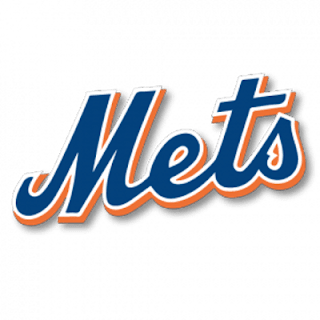Never mind all that. I have a Mets mystery to solve. It concerns this:
What the heck?
Doesn't this Japanese soda made by beverage giant Kirin look a little like...
Why, yes it does.
I had never heard of Mets soda, but saw it in passing in a video about the strange Japanese (but I repeat myself) world of vending machines. I sat up. Wha...? The Mets have a soda brand? So I did some digging.
I have read, on a Web site that has just gone defunct so I can't link to it (I blame Trump) (organize and resist!), that the name of Mets soda does come from a baseball team, but not the New York one, or in fact a real one; it comes from the fictional Tokyo Mets, who appeared in a manga that ran from 1972 to 1976. It was called Yakyuukyou no Uta, and this is the summary: "Against her insistence, Yuuki is drafted by the Tokyo Mets as the first woman player in the baseball league."
Maybe the New York Mets should try it. What the hell, we're mired in fourth place.
Anyway, it's not too surprising that the manga creators should have named the team after the Mets, since they would have started work on this title soon after the New York Mets shocked the baseball world by winning the 1969 Series, the first expansion team to do so. And using a team name that way might be considered a non-violation, fair use of a trademark -- which then transferred to the soda.
Okay, so let's say the Mets name is up for grabs; what about that logo?
Generally, the United States and Japan respect each other's trademarks, both being signatories to the Madrid Protocol. (I know, China is too, but I expect better out of Japan.) For all I know, the Mets get a quarter every time the Japanese buy a case of Mets soda. Apparently the Mets soda has been around for a while, so I can't quite believe that the New York organization, greedy as it is, has never heard about it.
Mets cola, also by Kirin, made the headlines seven years ago by claiming to help people lose weight. I guess Mets losing can be a good thing, but I still dislike it.
Meanwhile, closer to home, we have a propane distributor in the northeast that goes by this name:
Hmm... Doesn't that remind you a little of...?
Good thing for the propane guys that the New York Yankees have such a reputation for being kind and generous.




5 comments:
Can't click the boxes again.
When stationed in Japan, I got a kick out of many of the names. One was Pocari Sweat, a sports drink. I guess they heard that Gatorade was developed at Univ of Fla by collecting the shower water after the Gators sweated their butts off during practice.
saddled with injuries (as usual), stupid coaching, and criminal ownership.
Did you miss a couple of (as usual)s there?
All Star Game had players miked up which was fun.
They miked up the players? Someone must have had a finger right on that bleep button!
That part was actually pretty cool; I heard Francisco Lindor talk about making reservations at my favorite restaurant in Cleveland. While he was playing short.
Regarding Fake Baseball, I assume you are referring to the DH. You gotta rethink your stance, man. Who wants to see Jacob deGrom blow out an elbow trying desperately to make contact? If you're trying to save the game rules from the Knickerbocker era, we're gonna have to go back to umpires warning players that they need to swing at strikes, calling runs "aces", and not allowing batters to take a step when 'striking' at a ball. Otherwise, the pure game you are imagining is a game from... 1972.
The game has always changed. It's evolved annually and consistently since its inception. The DH brought more excitement, more pitcher specialization, more balls in play, and less NL pitchers batting .145.
Post a Comment